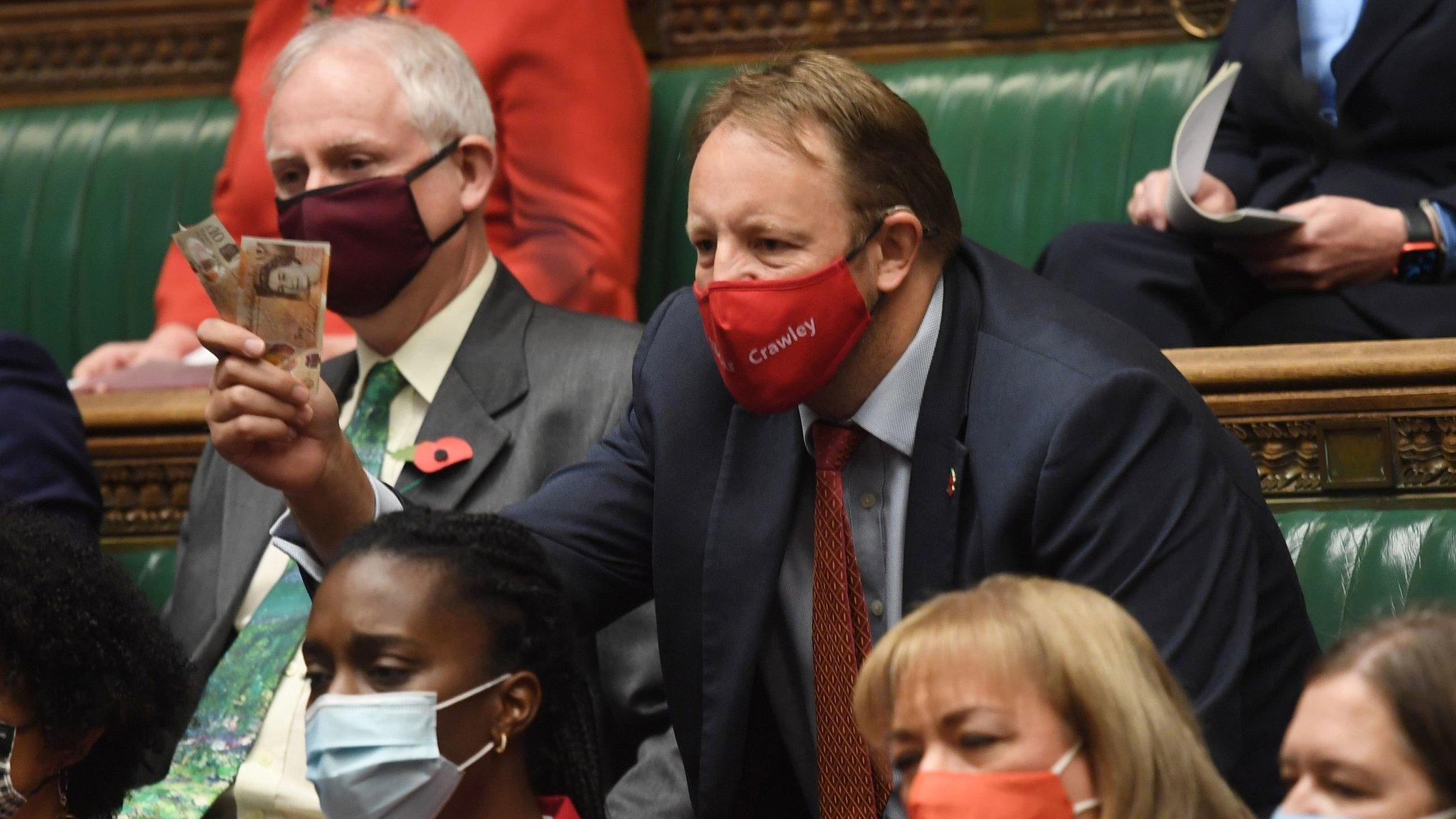Matt Hancock ordered to apologise over rule breach
- Published
In a personal statement, Matt Hancock apologies to MPs for his "minor breach" of Commons rules.
The former health secretary, Matt Hancock, has been found to have breached Parliament's rules for attempting to influence an inquiry into a Conservative MP.
A standards watchdog ordered Mr Hancock to apologise for the "minor breach".
Mr Hancock wrote a letter defending Tory MP Steve Brine, who was investigated over lobbying allegations.
Mr Hancock denied trying to influence the investigation by Parliament's standards commissioner.
On Monday, Mr Hancock apologised to the House of Commons, in line with the findings of the report, external by the Commons Committee on Standards.
He told MPs that the committee had "found that I did not seek to break the rules, had no prospect of personal gain and acted without malice".
Mr Hancock said: "However they recommended I apologise to the House and the Commissioner for this minor breach and underline that respect for the Code and processes of investigating potential breaches of the Code is an important and necessary part of the Code. I am happy to do so."
The the Commons Committee on Standards found Mr Hancock had made "a clear attempt to influence the commissioner's investigation".
The committee said Mr Hancock had breached a rule that prevents MPs from lobbying the commissioner in a way that is "calculated or intended to influence his consideration".
"Mr Hancock is a former cabinet minister and has been an MP for over 10 years," the committee's report said. "It is concerning that a member with this experience has not taken account of these provisions of the code."
The committee recommended that Mr Hancock should make a personal statement to apologise to the House of Commons and the standards commissioner, Daniel Greenberg.
He should also attend a "briefing on his obligations under the code with the commissioner", the committee's report said.
MPs are expected to behave within rules set out in a code of conduct, external approved by the Commons, and any alleged breaches can be investigated by the standards commissioner.
Lobbying claims
The report said Mr Hancock had sent the commissioner an unsolicited letter while he was investigating Mr Brine - the chair of the Commons health committee - over claims he lobbied the NHS on behalf of a recruitment firm.
Leaked messages from 2021 showed Mr Brine had been trying contact health bosses while acting as a paid consultant for Remedium Partners, a recruitment firm offering doctors for free to the NHS.
Mr Brine, a former health minister, said he was responding to a call from ministers to help the NHS during the Covid-19 pandemic.
The texts were some of the more than 100,000 WhatsApp messages involving Mr Hancock that were leaked to the Telegraph newspaper by journalist Isabel Oakeshott.
Last month, Mr Brine was found to have breached the rules, external twice by failing to declare in his approaches to cabinet ministers in 2021.
But the commissioner, Mr Greenberg, cleared Mr Brine of paid advocacy.
During the investigation, Mr Hancock wrote a letter to the commissioner, arguing "that what Mr Brine did was acting overwhelmingly in the national interest".
The rulebook for MPs says they should not try to influence the decision of the commissioner during an investigation into an alleged breach.
Mr Hancock, who became one of the best-known politicians in the country during the Covid-19 pandemic, remains suspended as a Tory MP for for taking time off from his parliamentary duties to appear on I'm A Celebrity last year.
Related topics
- Published12 April 2023

- Published17 March 2023

- Published5 November 2021
